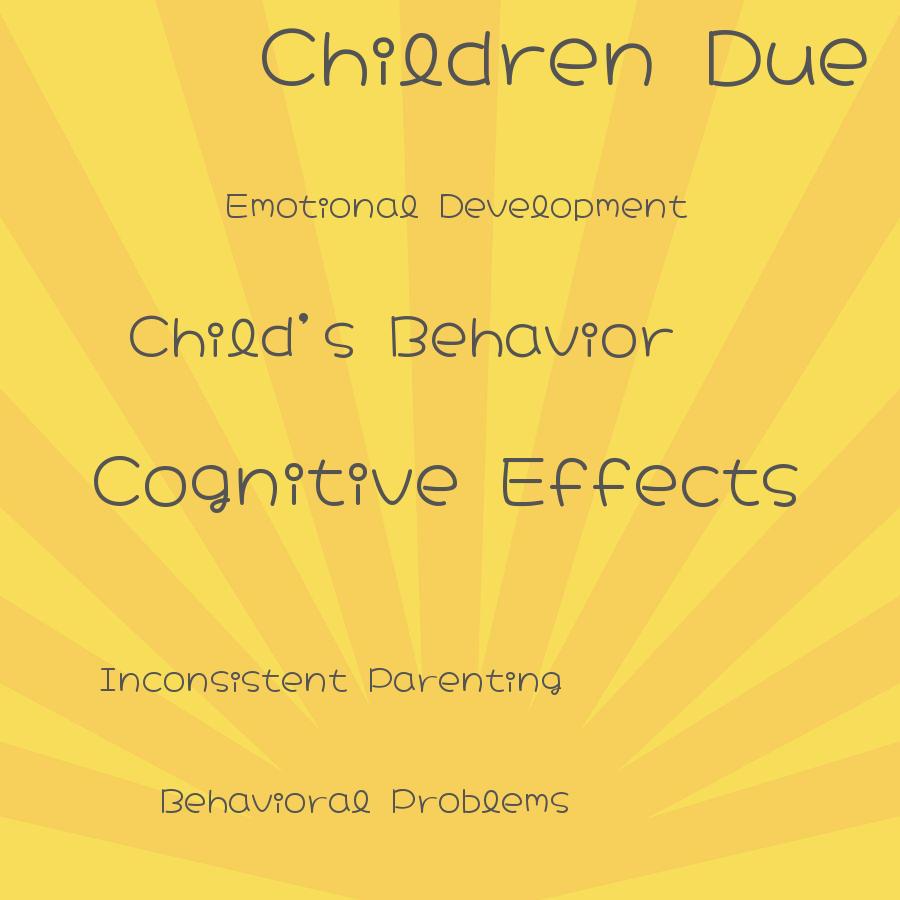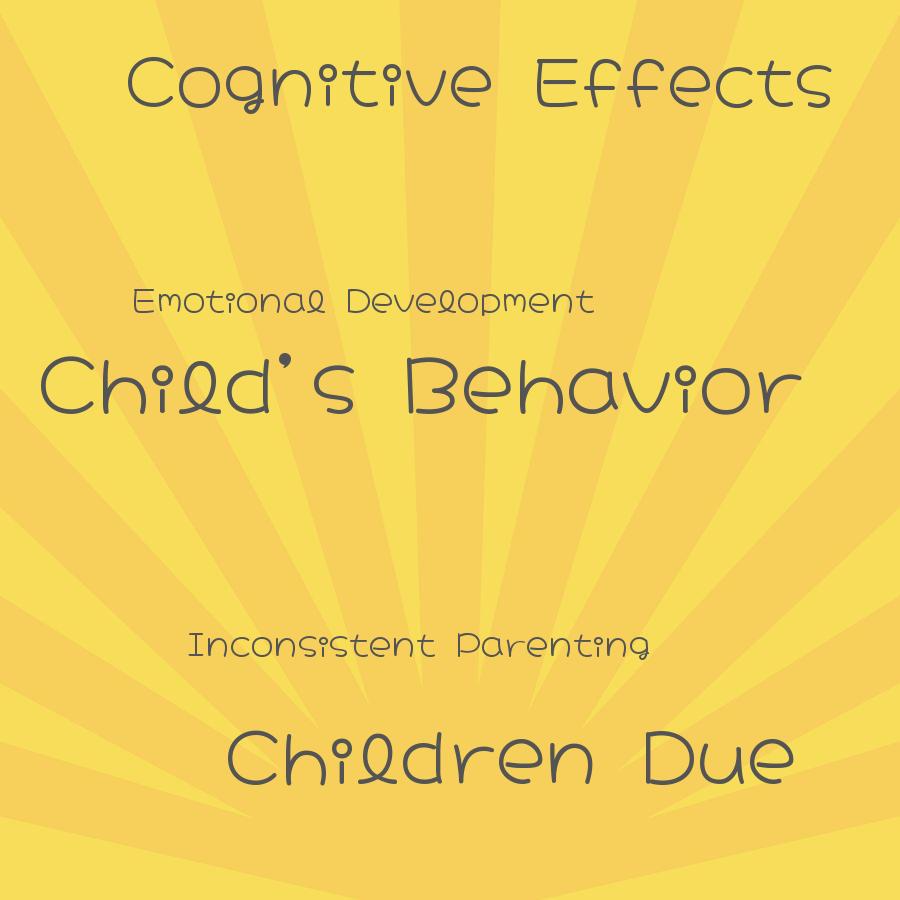Inconsistent parenting can lead to negative effects on a child’s behavior, including difficulty with emotional regulation, impulsiveness, and low self-esteem.
As a child, I remember being envious of my friends who had parents that were always there for them. They would attend every school event, help with homework, and even pack their lunches.
In contrast, my own parents were often absent due to work commitments and when they were home, they were strict and distant. As a result, I struggled with behavioral issues in school which affected my social life and academic performance.
This experience led me to research the effects of inconsistent parenting on a child’s behavior. In this blog post, we’ll explore the impact that inconsistent parenting can have on a child’s emotional development and how it can lead to behavioral problems later in life.
So grab a cup of coffee or tea as we delve into this topic together!
Here You Will Learn:
Introduction to Inconsistent Parenting


Inconsistent parenting is a term used to describe the lack of stability and predictability in a parent’s behavior towards their child. This can manifest in various ways, such as being overly strict one day and lenient the next, or being emotionally distant at times while smothering with affection at others.
Inconsistent parenting can have long-lasting effects on a child’s emotional development and behavior.
Research has shown that children who experience inconsistent parenting are more likely to develop behavioral problems such as aggression, anxiety, depression, impulsivity and poor social skills. These children may also struggle with academic performance due to difficulty concentrating or following rules.
As I reflect back on my childhood experiences of inconsistent parenting from my own parents’ work commitments which led them to be absent most times when they were needed by me; it affected me negatively both academically and socially. My grades dropped significantly because I found it hard focusing during class hours since there was no one around for homework help nor anyone checking up on me if I did my assignments correctly.
Making friends became difficult because of trust issues developed over time due to feeling neglected by those closest to me -my parents-.
It is important for us as parents or guardians not only provide basic needs but also give our kids consistent love & attention so that they grow into well-rounded individuals capable of handling life challenges without breaking down easily under pressure!
Behavioral Problems in Children Due to Inconsistent Parenting
Behavioral problems in children due to inconsistent parenting can manifest in various ways. Children who experience inconsistency from their parents may struggle with emotional regulation, leading to outbursts of anger or frustration.
They may also have difficulty following rules and boundaries set by authority figures, as they have not had consistent guidance at home.
In my own experience, I found myself acting out in school when I felt neglected or unsupported at home. My grades suffered as a result of my behavioral issues and it was difficult for me to make friends because of the way I acted towards others.
Research has shown that children who grow up with inconsistent parenting are more likely to develop anxiety disorders and depression later on in life. This is because they do not feel secure or safe within their family environment which can lead them feeling anxious about the world around them.
It’s important for parents to understand that consistency is key when it comes to raising well-adjusted children. By providing clear expectations and consequences for behavior, parents can help their child feel secure while also teaching them how to regulate emotions appropriately.
Impact of Inconsistency On Child’s Emotional Development
Growing up, I often felt like my parents were never there for me when I needed them the most. This inconsistency in their parenting style had a significant impact on my emotional development.
Children who experience inconsistent parenting may struggle with feelings of abandonment, rejection and insecurity.
Inconsistent parenting can lead to confusion and anxiety in children as they are unsure of what to expect from their caregivers. They may feel neglected or unimportant which can result in low self-esteem and poor self-worth.
As a child, I remember feeling like no matter how hard I tried, it was never enough for my parents. This constant feeling of disappointment led me to believe that something was wrong with me which affected my ability to form healthy relationships later on in life.
Research has shown that children who experience inconsistent parenting are more likely to develop mental health issues such as depression and anxiety disorders compared to those raised by consistent caregivers.
It is important for parents or guardians who struggle with consistency in their approach towards raising children seek help through therapy or counseling services so that they can provide the necessary support required by their child’s emotional needs.
Cognitive Effects of Inconsistent Parenting On a Child
Growing up with inconsistent parenting can have a significant impact on a child’s cognitive development. Children who experience inconsistency in their upbringing may struggle to develop problem-solving skills, decision-making abilities, and critical thinking skills.
This is because they are often left to navigate complex situations without the guidance of consistent parental figures.
In my own experience, I found myself struggling with decision-making as a result of my parents’ inconsistent parenting style. Without clear boundaries or expectations set by my parents, I was left feeling unsure about how to approach certain situations and lacked confidence in making decisions for myself.
Research has shown that children who grow up with inconsistent parenting are also more likely to struggle academically compared to those raised by consistent caregivers. This is due in part because these children may not receive the necessary support at home needed for academic success such as help with homework or encouragement towards education.
It’s important for parents and caregivers alike to understand the long-term effects that inconsistency can have on their child’s cognitive development and take steps towards providing consistency whenever possible.
Long-term Consequences of Erratic Parental Behavior
Growing up, I struggled with behavioral issues that affected my academic performance and social life. As an adult, I realized that these problems were a result of inconsistent parenting.
Unfortunately, the long-term consequences of erratic parental behavior can be severe.
Studies have shown that children who experience inconsistent parenting are more likely to develop mental health issues such as anxiety and depression later in life. They may also struggle with forming healthy relationships due to trust issues developed during childhood.
In addition to emotional consequences, erratic parental behavior can also lead to poor decision-making skills and difficulty regulating emotions in adulthood. This is because children who grow up without consistent boundaries or guidance may not learn how to make responsible choices or manage their feelings effectively.
It’s important for parents to understand the impact their actions have on their child’s development both now and in the future. Seeking help from professionals such as therapists or family counselors can provide support for both parent and child while working towards creating a stable home environment conducive for positive growth outcomes over time.